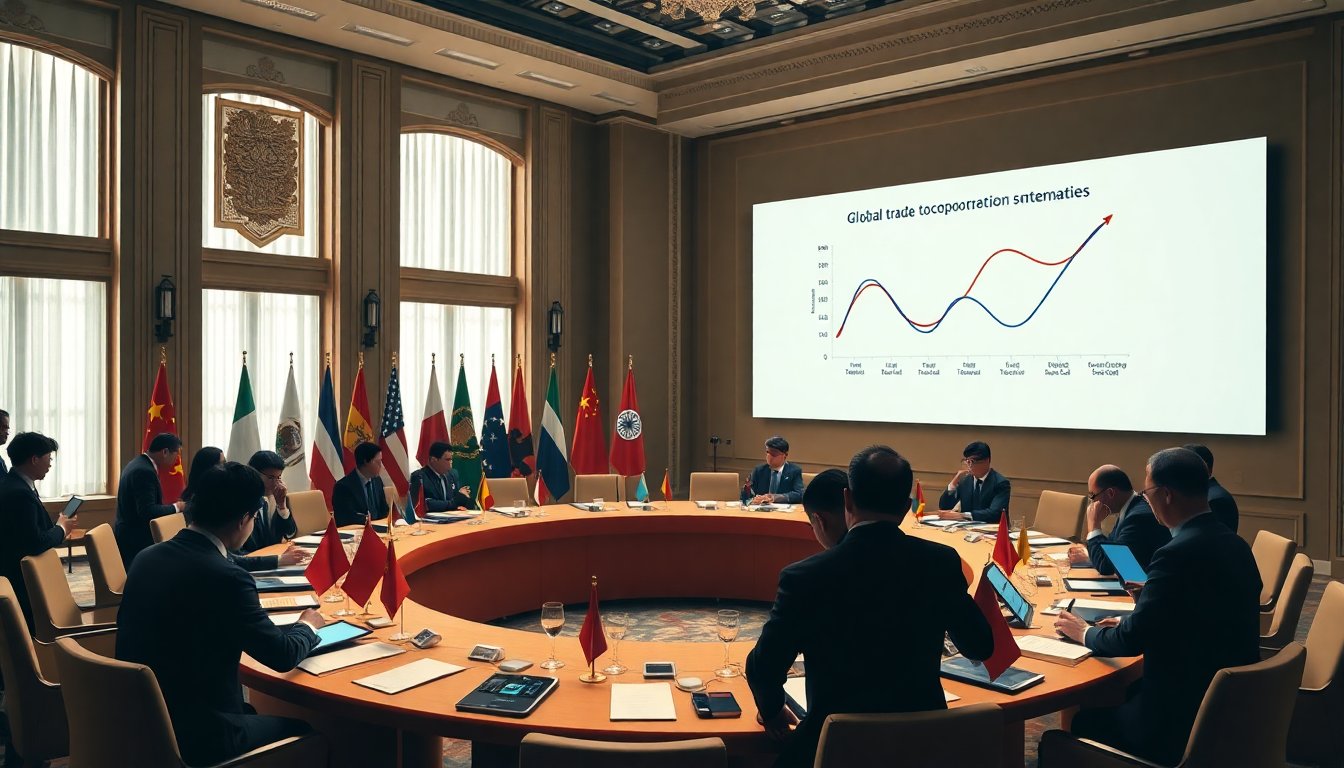Table of Contents
As the world shifts toward collaboration rather than individualistic approaches, China is firmly advocating for multilateralism. This strategy aims to foster cooperation among countries, particularly against the backdrop of escalating tensions and trade disputes, notably with the United States. In an evolving global economic environment, China’s push for a united framework sharply contrasts with the protectionist measures emerging from Washington.
The call for multilateralism
In recent discussions, Chinese officials have highlighted the necessity of global cooperation. They assert that multilateralism is vital for tackling urgent global issues, including climate change, public health crises, and economic disparities. China contends that through enhanced dialogue and collaboration, nations can reach common objectives more efficiently than through solitary actions.
China’s perspective on trade
The impact of the United States’ tariff policies on global trade has been considerable. These measures, designed to protect American industries, have led to disputes that could destabilize international markets. China has voiced strong criticism of these tariffs, labeling them as counterproductive and harmful to global trade. Chinese officials contend that such protectionist strategies erect barriers, impede economic growth, and do not ultimately benefit any country over time.
China’s strategic response to US tariffs
China’s reaction to US tariffs signifies more than just discontent; it embodies a calculated approach to assert its role in global trade. The nation is actively promoting multilateral trade agreements and partnerships to counteract US dominance. A prime example of this strategy is the Belt and Road Initiative, which aims to improve connectivity and stimulate economic collaboration across Asia and beyond.
International reactions
China’s focus on multilateralism has attracted attention from various countries, particularly those feeling sidelined by the existing international order. Many nations are looking to explore alternatives to US-dominated frameworks, viewing China as a possible ally in creating a more balanced global system. This shift in alliances challenges the long-standing influence of the United States and indicates a potential reconfiguration of international relations.
The humanitarian perspective
The economic consequences of these policies are critical, but the humanitarian issues deserve equal attention. As international tensions escalate, the effects on everyday people become clearer. Conflicts, such as those occurring in Gaza, emphasize the pressing need for a united approach to conflict resolution and humanitarian assistance. The struggles faced by children and families caught in these situations highlight the importance of nations collaborating rather than working in isolation.
Global responsibility and cooperation
The need for global responsibility has become increasingly urgent. Nations must acknowledge their interconnectedness and the shared obligations they have in addressing worldwide crises. Embracing multilateralism allows countries to devise comprehensive strategies that address not only economic issues but also humanitarian challenges. Such collaboration could foster more effective solutions and contribute to a more stable global environment.
China’s strong support for multilateralism and its criticism of US tariffs signal a notable shift in global dynamics. As countries navigate the complexities of international relations, prioritizing collaboration over isolation is likely to gain importance. The future hinges on nations’ ability to unite in tackling both economic and humanitarian challenges, paving the way for a more stable and equitable world for all.


